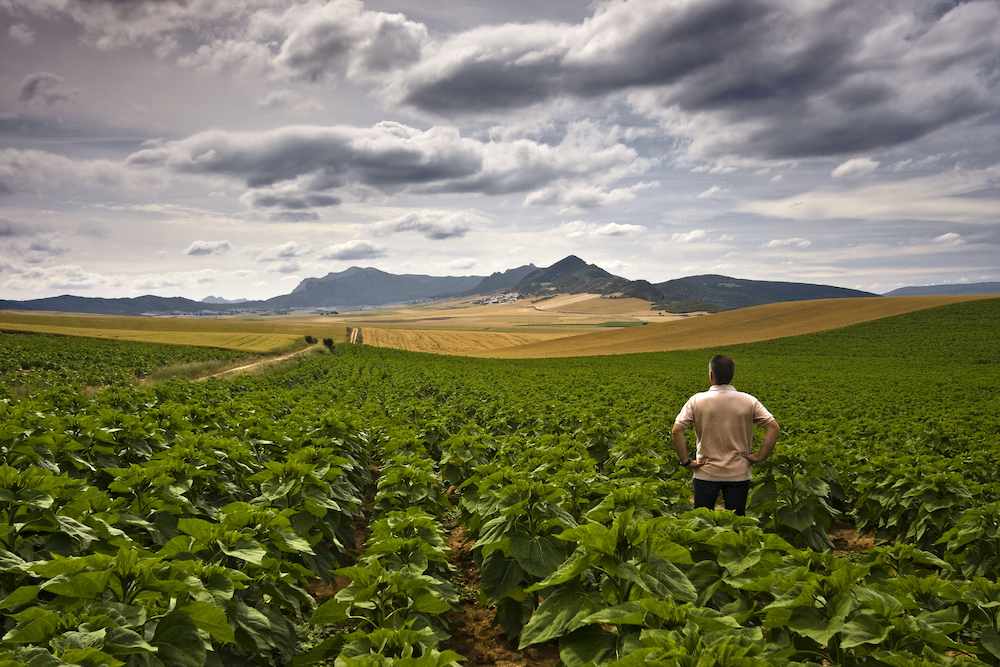Opinion: how fresh produce became 'cool'

By Greenscans co-founder and BerryBroad Juanita Gaglio
 The produce industry is one of the most mysterious and puzzling sectors to outsiders. "I happened to to fall into it," is the most frequent response in conversations with other individuals employed in produce. We operate like most companies in corporate America with positions from sales to quality control headed by a CEO and board members. Although, this is not too different from the previous industry that I came from – the airline industry also insulated with its own language and lifestyle.
The produce industry is one of the most mysterious and puzzling sectors to outsiders. "I happened to to fall into it," is the most frequent response in conversations with other individuals employed in produce. We operate like most companies in corporate America with positions from sales to quality control headed by a CEO and board members. Although, this is not too different from the previous industry that I came from – the airline industry also insulated with its own language and lifestyle.
The biggest difference between the produce world is that we come from very diverse backgrounds. We may have begun as an accountant or lawyer and somehow got a taste of the business, only to remain. This is one of the few industries where people choose to stay due to the passion of the industry. We have an immense global supply chain from the grower to the end consumer. With the proliferation of organics, buy local, food blogs and certainly social media, suddenly produce industry has a "cool" factor.
Many universities offer degrees in various sectors of the business. The Produce Marketing Association (PMA) and other industry organizations have programs to introduce new talent to companies, so it has gone from "I just fell into it" to "I majored in Farm and Ranch Management". Recent statistics for the median salary range for agriculture majors begins at US$41,000.
In the early days, relationships were the building blocks of the business. Slowly over the past ten years, competitive pricing has edged out relationships. Supermarket mergers, technology and changes in purchasing personnel have changed the landscape. Over the last 15 years, marketing has been my field of interest as it combines many complex facets from understanding how the commodity is grown to the retailer's business model, and finally to the end end consumer demographics.
Fast forward to conducting business in 2012, and what are the major changes in the marketing role? The biggest change is how technology has become entrenched in produce decisions. It began with itrade – buyers receive pricing through e-commerce, removing the "relationship" with the company buyer. Life has become much more time restrictive for the buyer with their waterfall of emails. A return phone call is a luxury that rarely occurs. How do you get through at the retail level?
The skill set has to be stronger and diverse. It helps to have a good mix of psychology and business acumen. Presentations with in-depth understanding of the customer through industry data and pricing structure will get attention.
Suddenly, we are neck deep in technology. What began as a pleasant low key career has now turned into fast paced social media sites, QR and barcodes, food safety tracking and a commodity trading floor akin to Wall Street. I have said that individuals trained in produce marketing are the best prepared. We have to plan well in advance for the imminent harvest. Once the product is harvested, we are prepared to turn on a dime if the crop is damaged or short. And try to reach the key buyer to explain any changes.
Last year, the longest period of time it took me to reach a buyer of a major retail chain was 2.5 months. After faithfully calling on a weekly basis, I finally decided that it would be quicker to drive the twenty minutes to the office. Upon showing up, I explained that I wanted to place a request for a meeting. One week later, meeting granted. This is an extreme example, but illustrates how times have indeed changed.
We have a mix of "old school" and new graduates that are able to spin a pivot table, manage Outlook calendars and create fancy power point presentations. The industry is attracting professionals from the CPG (consumer packaged goods) sector. Produce is catching up to the 21st century along with its packaged goods counterpart.
Budgets are now being allocated for international trade shows. Eight years ago, I attended my first Fruit Logistica in Berlin. I was overwhelmed by the number of international exhibitors. When I shared my experience with other produce colleagues, they could not see any benefit in attending this show. How many U.S produce companies will be attending Fruit Logistica in three weeks time? Yes, I thought so. See you in Berlin.
And PMA Fresh Summit? Every year that show has become more international in attendance. Whether you are shipping product from Australia or South Africa, the world is only a Skype away, as we hold internet meetings and book a face to face at the next trade show. We realize that anything is possible.
So for the old timers, like me, embrace change and use it to your advantage. Yes, we are an "old school" industry but we are quickly catching up. For those of you just entering the produce arena, "welcome". We are happy to have fresh ideas and learn new things from you. Together we are a veritable vegetable cocktail infused wih more "cool" than we realize.
How do you think the fresh produce "cool factor" has changed in recent years? Berrybroad will be at Fruit Logistica seeking comments from professionals and upcoming stars on what they like about the produce industry. You can contact the BerryBroad via her website. You can also follow her on Twitter: @berrybroad







































